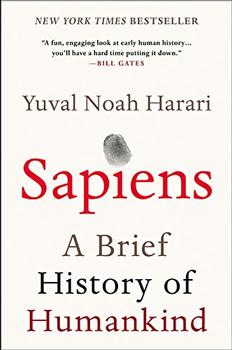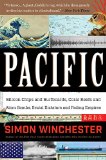Summary | Excerpt | Reviews | Beyond the book | Read-Alikes | Genres & Themes | Author Bio

What Can We Learn from Traditional Societies?
by Jared DiamondThe World Until Yesterday provides a mesmerizing firsthand picture of the human past as it had been for millions of years - a past that has mostly vanished - and considers what the differences between that past and our present mean for our lives today.
Most of us take for granted the features of our modern society, from air travel and telecommunications to literacy and obesity. Yet for nearly all of its six million years of existence, human society had none of these things. While the gulf that divides us from our primitive ancestors may seem unbridgeably wide, we can glimpse much of our former lifestyle in those largely traditional societies still or recently in existence. Societies like those of the New Guinea Highlanders remind us that it was only yesterday - in evolutionary time - when everything changed and that we moderns still possess bodies and social practices often better adapted to traditional than to modern conditions.
The World Until Yesterday provides a mesmerizing firsthand picture of the human past as it had been for millions of years - a past that has mostly vanished - and considers what the differences between that past and our present mean for our lives today.
This is Jared Diamond's most personal book to date, as he draws extensively from his decades of field work in the Pacific islands, as well as evidence from Inuit, Amazonian Indians, Kalahari San people, and others. Diamond doesn't romanticize traditional societies - after all, we are shocked by some of their practices - but he finds that their solutions to universal human problems such as child rearing, elder care, dispute resolution, risk, and physical fitness have much to teach us. A characteristically provocative, enlightening, and entertaining book, The World Until Yesterday will be essential and delightful reading.
[Jared] Diamond paints with a very broad brush, which means that while the scope of his work is exciting, the complexity of the details can be lost. The gaps left by the broad-brush approach grow frustrating. Diamond doesn't engage in the history of his question ('What can we learn from traditional societies?'), for one thing. He isn't interested in meta-debate, but the lack of a recent historical perspective reads like a glaring omission...continued
Full Review
 (771 words)
(771 words)
(Reviewed by Jennifer G Wilder).
Jared Diamond's question, "What can we learn from traditional societies?" is one Westerners have been asking in a Utopian spirit for generations, looking for ways to revivify our cultural practices and trying revisionist experiments to reverse the damage civilization does to our health and psyches. It's a tricky exercise, since there are plenty of traditional practices – like the Kaulong people's practice of widow strangulation, that humanity is well rid of. A glimpse of what life was like in traditional societies (in the words of Thomas Hobbes, "nasty, brutish, and short"), especially for women, is enough to make one exceedingly thankful for modernity despite its imperfections. Still, we have an apt fascination with the natural and ...

If you liked The World Until Yesterday, try these:

by Yuval Noah Harari
Published 2018
A groundbreaking narrative of humanity's creation and evolution that explores the ways in which biology and history have defined us and enhanced our understanding of what it means to be "human."

by Simon Winchester
Published 2016
Pacific is a paean to this magnificent sea of beauty, myth, and imagination that is transforming our lives.